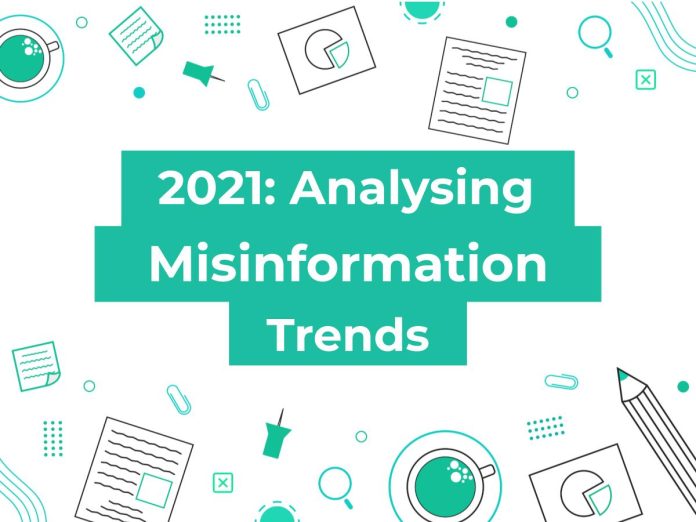Authors
Pankaj Menon is a fact-checker based out of Delhi who enjoys ‘digital sleuthing’ and calling out misinformation. He has completed his MA in International Relations from Madras University and has worked with organisations like NDTV, Times Now and Deccan Chronicle online in the past.
From Roman times to cold war Russia, dis/misinformation has always existed and has been an active tool to create narratives used to further a cause or achieve a political outcome. While there is no method of quantifying misinformation in the physical world, the advent of online media, particularly social media, while furthering the problem, offers an opportunity to monitor and dissect the trends and narratives of misinformation online, which in turn is a reflection of the discourse underway in the offline world.
As yet another year slides by, the menace of disinformation continues unabated. 2021 saw many events that took the internet by storm-the spread of the Delta variant of coronavirus, the West Bengal elections, controversy around Aryan Khan’s arrest and the tragic death of India’s first CDS Bipin Rawat are a few highlights.
In 2021, Newschecker analysed over 2,800 claims, spanning 9 languages. A close look at data collated reveals that certain topics saw an influx of fake news/misinformation at certain months of the year corresponding to offline issues in vogue. Take the example of the farmers’ protest which dominated headlines for most of the year. We found over 200 false claims through 2021 but a closer look shows that misinformation around this theme was most viral during January and February (134 instances found), when the movement was at its peak and attracted international attention including supportive tweets from celebrities like Rihanna and Greta Thunberg following the Republic Day violence.
Fake News Surrounding Coronavirus

As the Coronavirus pandemic continued for a second year, we found 210 instances of new misinformation around Covid-19, its treatment and vaccines in 2021. Newschecker’s annual analysis in 2020, the first year of the pandemic, had found 398 instances of misinformation around the same issue.
While incorrect and false information around the coronavirus was shared throughout the year, a major spike was recorded between April and July, and we debunked over 120 unique false claims in this period alone. This corresponds to the same period when India was reeling under the ‘second wave’ due to the spread of the Delta variant.
Misinformation Surrounding Current Affairs
Misinformation around other subjects was more seasonal, like the Afghan crisis, which saw a spate of fake claims between August and September 2021 (80 of 82 fact checks). This indicates that the conversation surrounding Afghanistan fizzled out from public attention a couple of weeks after the Taliban takeover. Similar was the case with misinformation surrounding cyclones. The month of May, when Cyclone Yaas and Tauktae swept across West Bengal and Odisha respectively, saw maximum misinformation surrounding cyclones and their after effects (10 instances).
Fanning The Communal Flames
Meanwhile, from Kawardha to Bangladesh to Tripura, 2021 saw its own share of communal clashes. On closely observing the nature of posts shared on social media during this period (October-November), Newschecker observed that there have been concerted efforts to maintain the momentum of online outrage by sharing provocative content.
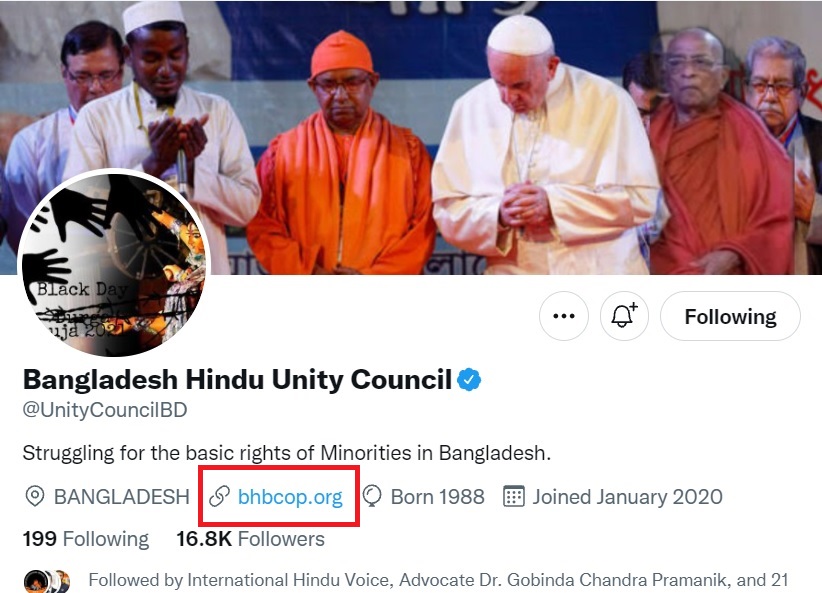
A case on point would be a Twitter profile, allegedly belonging to an organisation called the Bangladesh Hindu Council- later found to be an impersonator, which shared communally charged messages and videos out of context, to keep the online outrage growing.
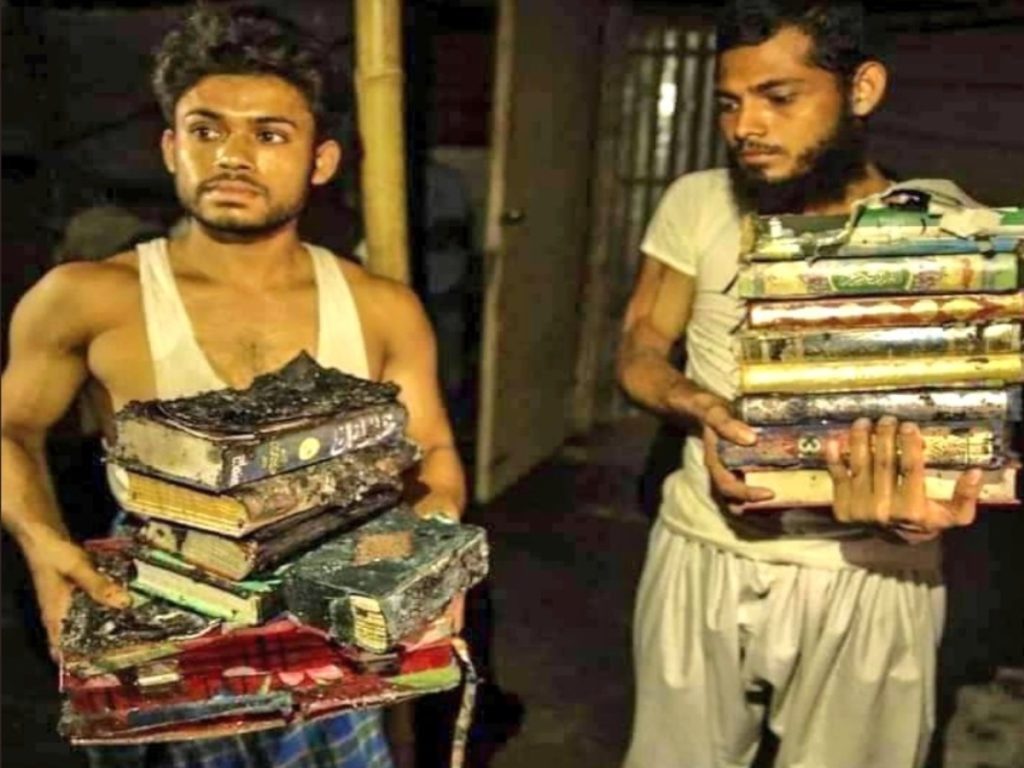
Several other pages operated during the Kawardha clashes and the Tripura violence too, sharing communally charged content to keep the momentum of hate going online.
Elections & Misinformation: Maximum Fact Checks On Claims Related To WB Polls
As a year that saw decisive polls in five major states, Newschecker’s analyses reveals that most election related misinformation concerned West Bengal (81 instances). Meanwhile, we also found that ahead of the upcoming UP elections, dates for which are yet to be announced, false narratives had already started circulating in 2021.
Types Of Misinformation
Newschecker also attempted to look at misinformation from a broader viewpoint and categorised them based on their nature. Dis/Misinformation has many shades, and varies depending upon the sophistication and effort that has gone into construction of the narrative. Newschecker categorises misinformation into six broad categories- misleading, misplaced context, manipulated media, partly false, partly true and true.
On analysing the data that Newschecker collated over the past year, we found that most misinformation shared fell into the ‘Misleading’ category (43%), which attempted to trap the users into believing in facts presented in a misleading way. Information that is outright ‘False’ followed suit, forming 31% instances found by us, whereas information shared with ‘Misplaced Context’ came a distant third, forming 8% of the incorrect claims that Newschecker debunked.
What Are The Themes Of Misinformation?
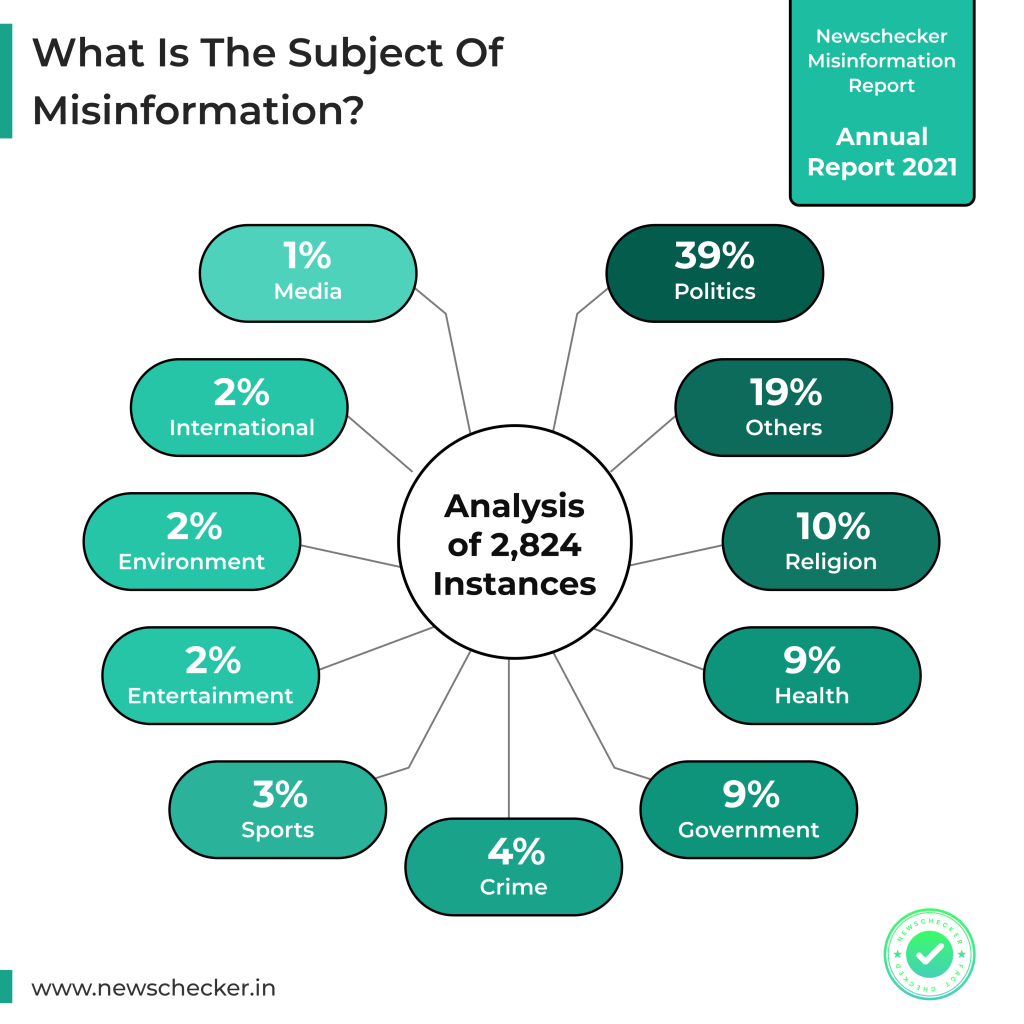
While we analysed the various types of misinformation in the previous paragraphs, it is also essential to look into the various themes of misinformation to get a full picture of the narratives at work.
2021 saw decisive elections in West Bengal, Kerala, Tamil Nadu, Assam and Puducherry. Elections are also due in Uttar Pradesh and Punjab in early 2022. And hence, it is no wonder that most instances of misinformation found by Newschecker was political in nature (39%). Religion was the second most prevalent topic of misinformation, forming 10% of the debunked false claims, followed by governance (9%). Curiously, even as a global pandemic raged, out of the total claims found, only 8% related to Coronavirus.
How Is Misinformation Shared?
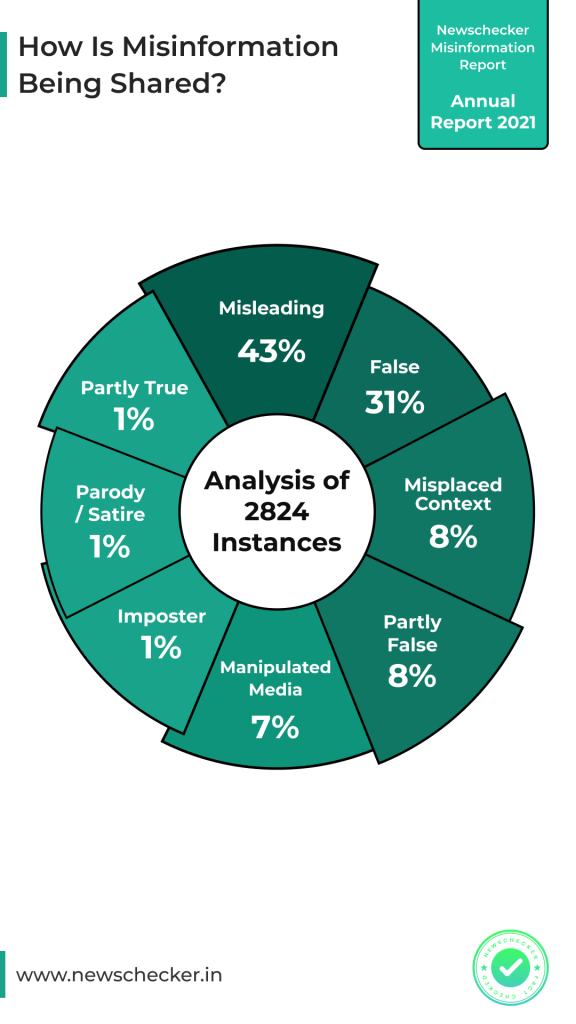
Based on the claims debunked by Newschecker in the last one year, we found that the most popular way of packaging misinformation was to overlay images with text (47%). Videos with text overlaid on them were the next most preferred format (19%) of sharing false information.
Most Fact Checks By Newschecker Were In Hindi
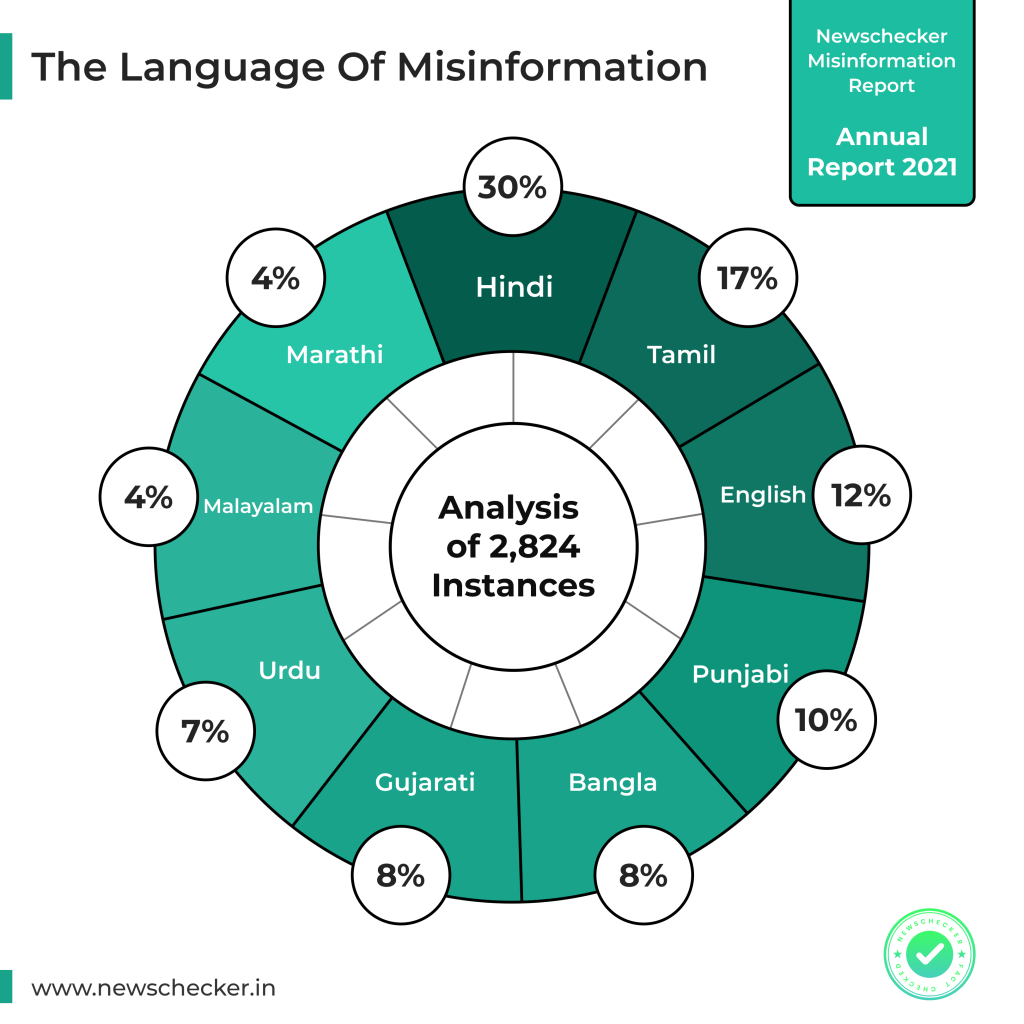
Newschecker’s analysis of over 2,800 fact checks done in the year 2021 reveals that most of the claims debunked were in Hindi, with constituting 30% of the total fact checks done in the last year. Tamil and English followed with 17% and 12% of fact checks in respective languages.
If you would like us to fact check a claim, give feedback or lodge a complaint, WhatsApp us at 9999499044 or email us at checkthis@newschecker.in. You can also visit the Contact Us page and fill the form.
Authors
Pankaj Menon is a fact-checker based out of Delhi who enjoys ‘digital sleuthing’ and calling out misinformation. He has completed his MA in International Relations from Madras University and has worked with organisations like NDTV, Times Now and Deccan Chronicle online in the past.

